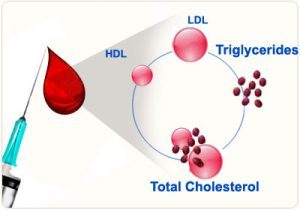- Home
- Editorial
- News
- Practice Guidelines
- Anesthesiology Guidelines
- Cancer Guidelines
- Cardiac Sciences Guidelines
- Critical Care Guidelines
- Dentistry Guidelines
- Dermatology Guidelines
- Diabetes and Endo Guidelines
- Diagnostics Guidelines
- ENT Guidelines
- Featured Practice Guidelines
- Gastroenterology Guidelines
- Geriatrics Guidelines
- Medicine Guidelines
- Nephrology Guidelines
- Neurosciences Guidelines
- Obs and Gynae Guidelines
- Ophthalmology Guidelines
- Orthopaedics Guidelines
- Paediatrics Guidelines
- Psychiatry Guidelines
- Pulmonology Guidelines
- Radiology Guidelines
- Surgery Guidelines
- Urology Guidelines
New lipid lowering drugs help patients reduce LDL cholesterol

A recent analysis indicates that adding new therapies called anti-PCSK9 antibodies to other lipid-lowering treatments can help patients lower their LDL cholesterol levels.
Mutations in the gene that encodes PCSK9 (proprotein convertase subtilisin/kexin type 9) have been linked to high cholesterol. PCSK9 causes elevated blood levels of LDL cholesterol because it binds to the LDL receptor. Two anti-PCSK9 antibodies have recently been approved by the US Food and Drug Administration and the European Medicines Agency: alirocumab and evolocumab.
Researchers identified 12 studies of alirocumab and nine of evolocumab, including more than 10,000 patients, most of whom were taking statins but still had elevated cholesterol. All studies demonstrated a reduction in LDL cholesterol with the anti-PCSK9 antibodies. Up to 87% of patients receiving alirocumab and up to 98% receiving evolocumab reached LDL cholesterol goals.
"Both anti-PSCK9 antibodies have cardiovascular outcome studies ongoing with results expected in 2017. We are looking forward to them since it is rather unusual to have results of large outcome trials so soon after the launch of a drug in the market," said Prof. Ioanna Gouni-Berthold, lead author of the British Journal of Clinical Pharmacology study.

Disclaimer: This site is primarily intended for healthcare professionals. Any content/information on this website does not replace the advice of medical and/or health professionals and should not be construed as medical/diagnostic advice/endorsement or prescription. Use of this site is subject to our terms of use, privacy policy, advertisement policy. © 2020 Minerva Medical Treatment Pvt Ltd